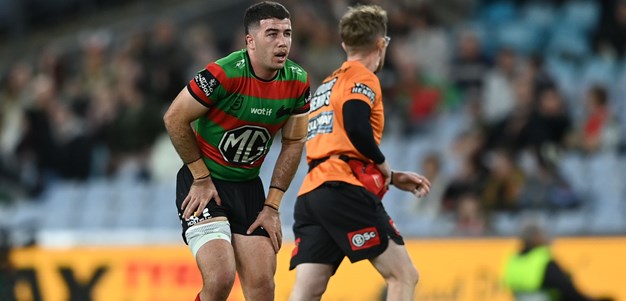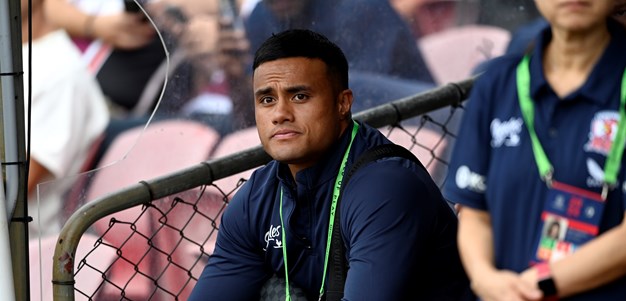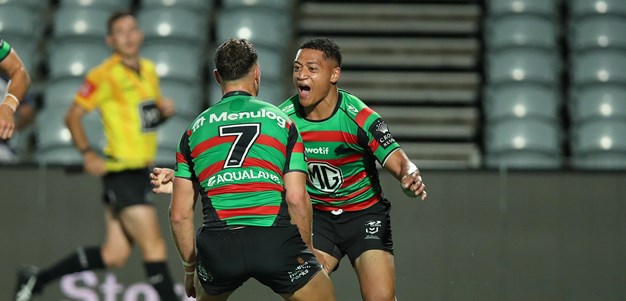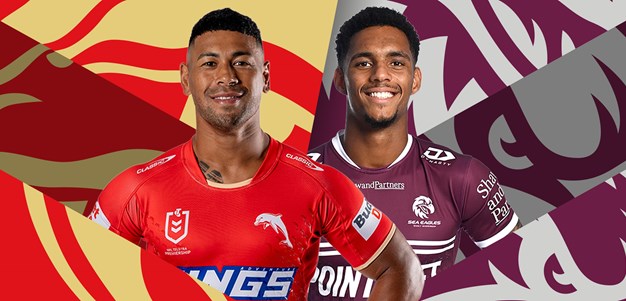Australian players will draw inspiration from the sacrifices of seven former Kangaroos who lost their lives in World War I when they face New Zealand in Saturday's trans-Tasman Test at Mt Smart Stadium.
The Kangaroos trained in brown jerseys, which were based on those worn by the Australian team in the first Test after World War I in 1919, when they took part in a captain's run at Eden Park on Friday, while each player has VII embroidered on their shorts.
Kangaroos coach Mal Meninga told a press conference after the training session that his players had been learning the stories of each of the seven former Australian internationals who had died in battle during World War I.
"It is 100 years since the end of World War I. The Kangaroos played a Test match straight after the war and that commemorates the jersey worn," Meninga said.
"The story behind the colour is that they didn't want to take any of the green dye for the soldier's uniforms. That is why we decided to use that as part of the captain's run."
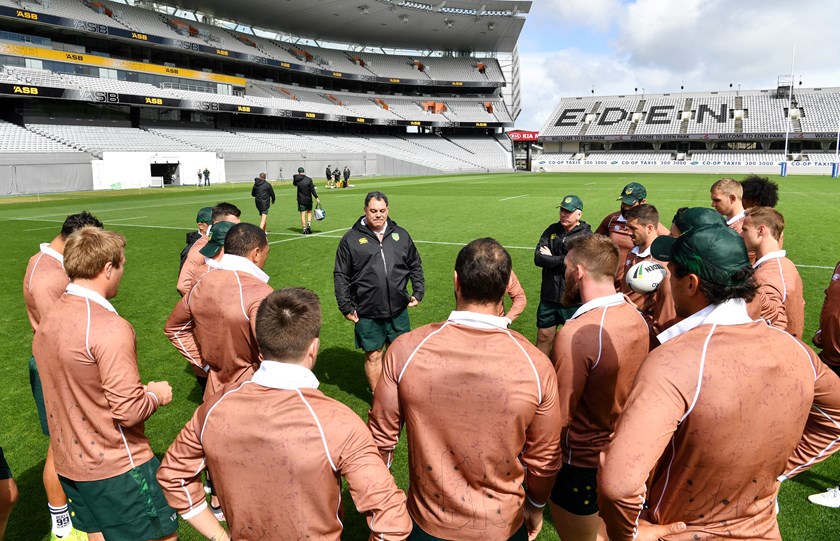
Cordner, who will captain Australia for the first time in the Test, said the players felt strongly about respecting the history of the Kangaroos.
"We had seven Kangaroos that sacrificed their life to go over and fight in that war," Cordner said.
"There is a lot of history in that jersey and it is about respecting that and respecting those guys who paved the way for us."
The seven include Frank Cheadle, the player honoured as the second Kangaroos representative after Dally Messenger. The others were Edward Baird (No.15), George Duffin (No.45), Johnno Stuntz (No.51), Edward Buckley (No.61), Charlie Savory (No.75) and Bob Tidyman (No.94).
Meninga took the Australian players, including the Jillaroos and Junior Kangaroos, to an army barracks in Brisbane last Sunday night to learn about the history of the war, and they are reminded about the fallen seven by the embroidered VII on their training shorts.
"That signifies the seven Kangaroos who put their lives on the line in World War I, starting with Frank Cheadle, who is Kangaroo No.2," Meninga said.
"We are just telling the stories of those soldiers and those Kangaroos. Some of the stories behind that are inspiring and it is important that we recognise the significance of that."

